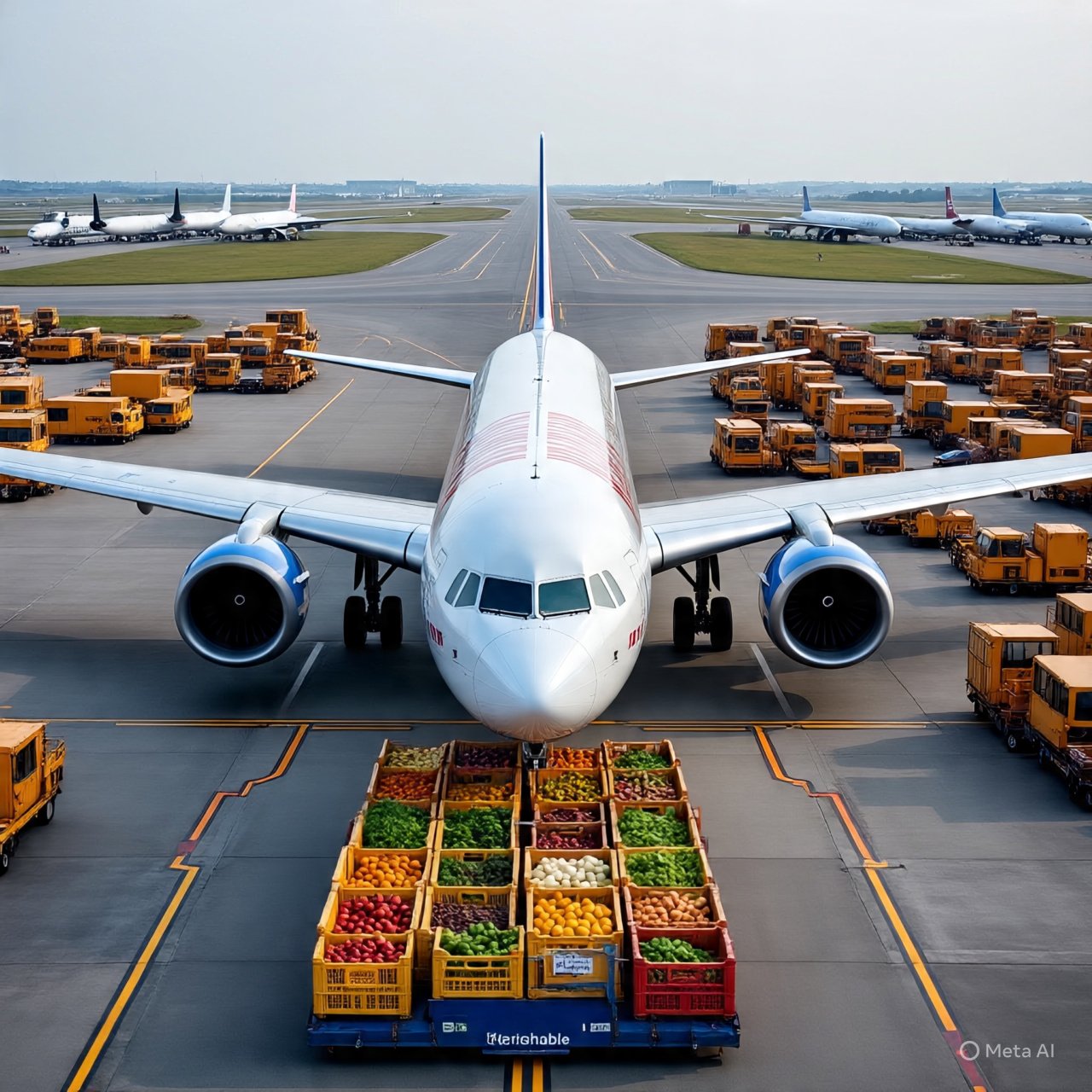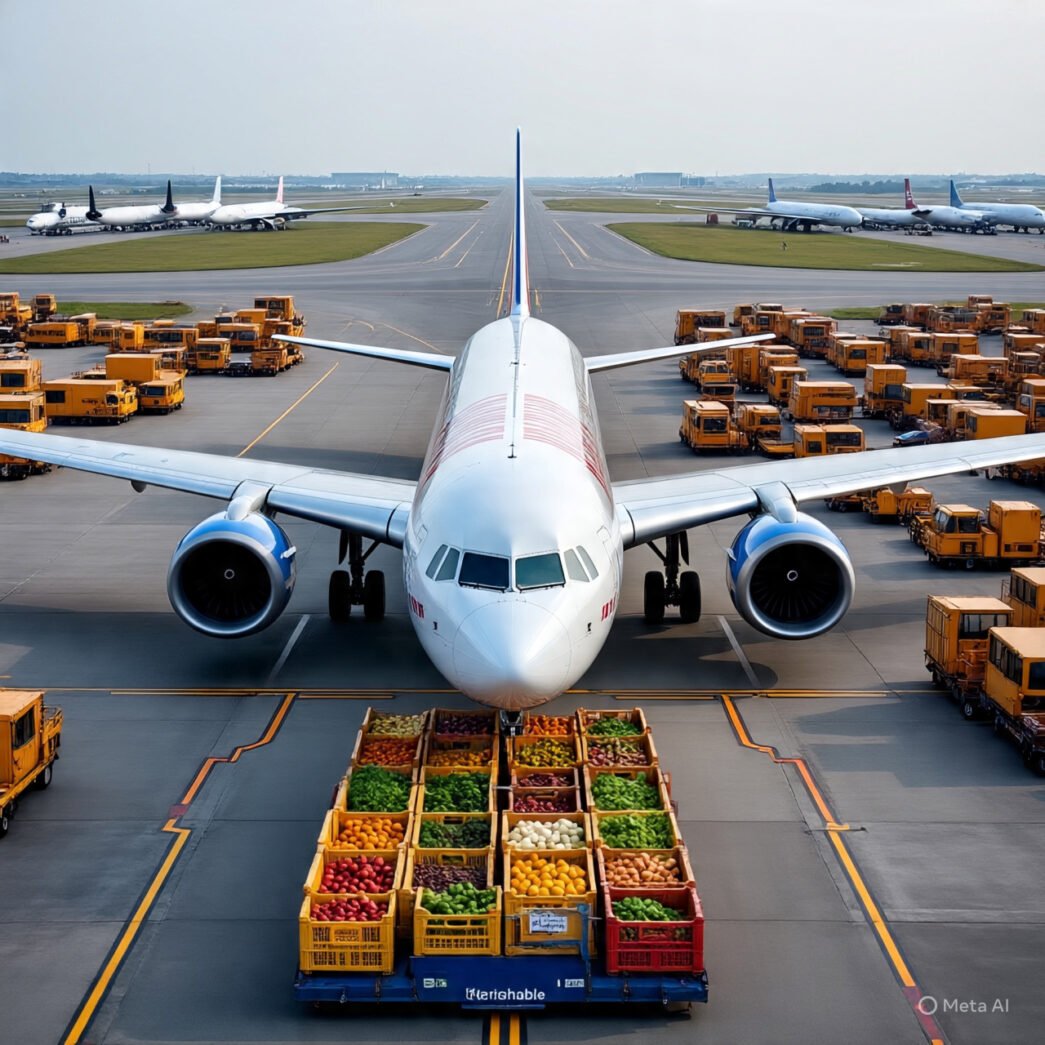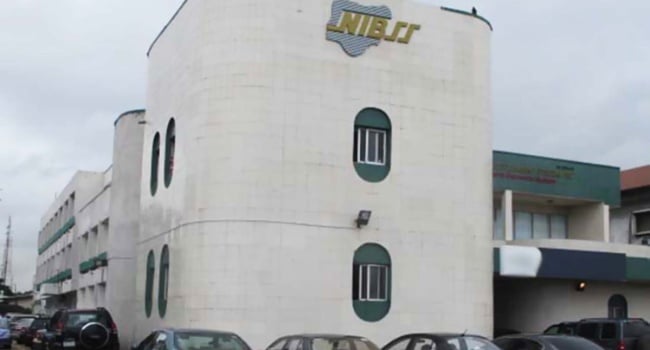An AI generated photo depicting a cargo plane about to airlift farm produce | Photo: Meta AI
“Engage in agriculture” and “uplift SMEs” are regular pieces of advice we hear about building a sustainable economy in Nigeria. However, the realities and limitations on the ground are often overlooked.
While many chase white-collar jobs, there are still those who would rather farm and provide food for the nation. Yet, they are faced with challenges that could have been easily avoided.
This is the story of Victoria Mina Entang, a 30-year-old farmer based in Jos, Plateau state. She specialises in growing vegetables such as cabbages, tomatoes, Irish potatoes, parsley, broccoli, celery, strawberries, and carrots.
A graduate of pest management technology with an upper credit, Victoria is also the chief executive officer (CEO) of She Grow Agro and founder of Kids in Agriculture Initiative. She is passionate about sustainable agriculture, youth empowerment, and community development.
Advertisement
Victoria has been selling her produce online for three years and has sold offline for about six to seven years. She farms on an acre of land along Vom road in Plateau state. Despite her passion and dedication, she faces major challenges in post-harvest distribution.
One of her biggest challenges is transporting farm produce across the country. Victoria said the goods often get damaged because drivers mishandled them.
“The drivers are not people that like farm products. When you give them like this, they will mishandle it,” she said.
Advertisement
“There was a day I went to the market. I saw them jumping on top of our green beans. They said that they were trying to make it fit inside the car.
“What I noticed is, if the car is supposed to take normal bags, like 20 bags, then they will put 25 or 30. How do they arrange the bags comfortably? They have to squeeze them. So, that was what I noticed.”
Victoria noted that post-harvest loss during transportation is a major setback, which is why she sometimes prefers sending her goods by air to places like Lagos.
However, even aircrafts do not guarantee the safety of her vegetables.
Advertisement
“There are days you finish sending your stuff, you relax, and then they will just call you at the airport that the flight is no longer taking off, or it’s overloaded, and so on,” Victoria said.
According to her, when cargo flights, especially those specified for vegetable transport, fail after farmers have already dispatched goods, the loss is heavy. Farmers are often forced to either refund their customers or find ways to manage the spoiled produce.
The farmer said she sometimes dehydrates the vegetables, even though the demand for dried vegetables is low in her region, which leads to losses.
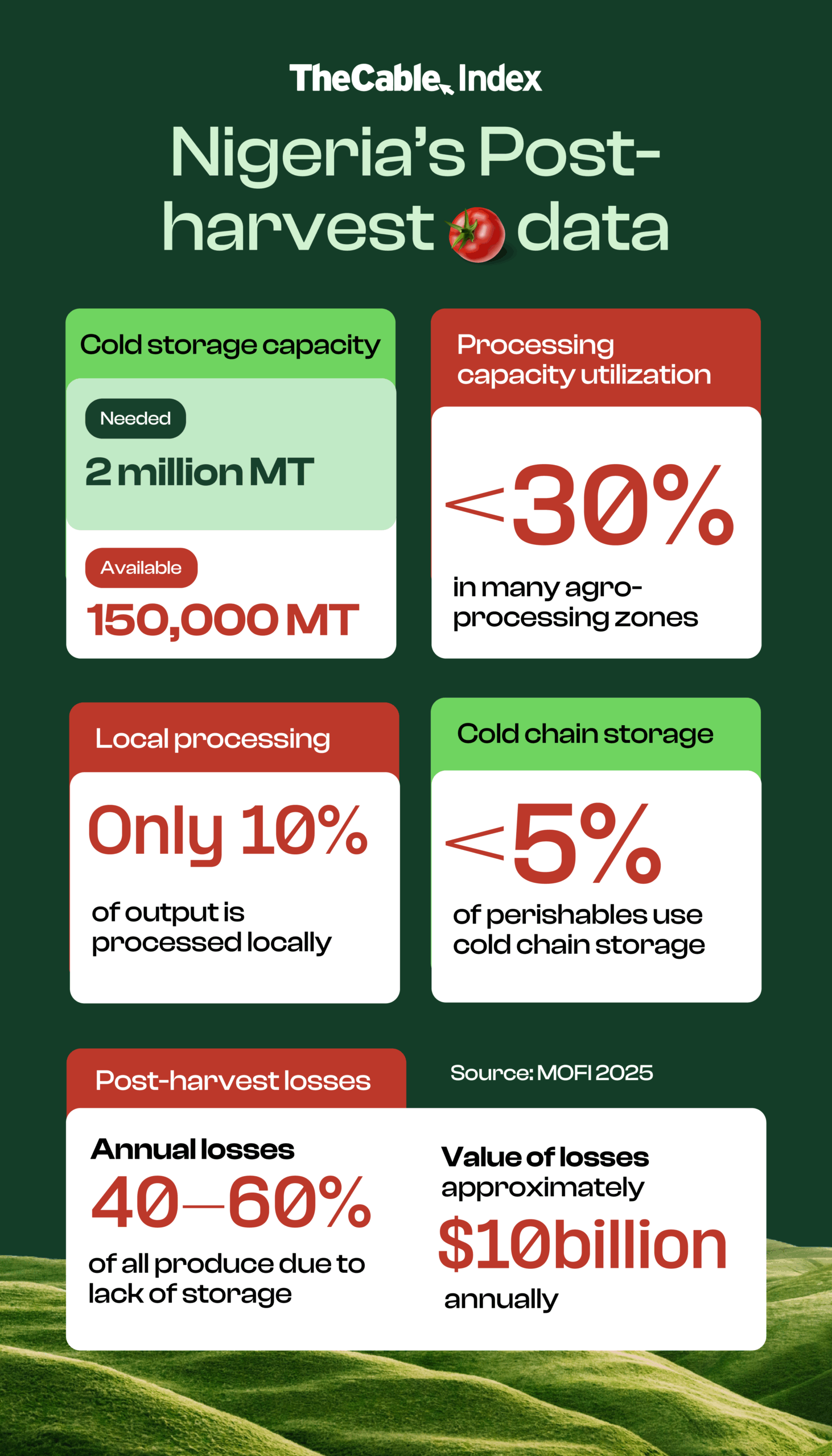
Advertisement
When asked if there is any form of compensation, Victoria answered no, as farmers bear the losses themselves.
“It keeps both of us stranded. The receiver is stranded, the sender is stranded. The sender is there waiting to hear that the produce has been delivered. I’m all shattered,” she said.
Advertisement
And how often does this happen? “Countless times,” she said.
Victoria said transporting goods through Abuja airport is more reliable than Jos airport because cargoes go on schedule through Abuja, but it is more expensive for farmers to use that route.
Advertisement
This raises critical questions. What mechanisms are truly in place to preserve fresh farm produce? If airlines considered more ‘trustworthy’ fail, how are farmers protected? Who bears the responsibility when produce is mishandled or delayed? What penalties exist for airlines’ negligence?
In December 2024, the Nigeria Civil Aviation Authority (NCAA) initiated enforcement action against five airlines — two international and three domestic — for violating Part 19 of NCAA Regulations of 2023.
Advertisement
The NCAA said the violations included failure to refund passengers within the stipulated timeframe, non-responsiveness to the authority’s directives, missing and manhandled luggage, short-landed baggage, and issues relating to flight delays and cancellations.
However, cases involving cargo and agricultural produce remain largely underreported.
On June 4, the Federal Airports Authority of Nigeria (FAAN) signed a memorandum of understanding (MoU) with the Plateau government to expand and develop the Yakubu Gowon Airport into a cargo hub for agricultural produce.
Caleb Mutfwang, governor of Plateau, praised the initiative for its potential to boost revenue and position the state as a hub for agricultural exports.
What this means is that farmers in the state, like Entang, could soon have better access to structured air cargo services, reducing post-harvest losses linked to unreliable flights and poor logistics.
The upgraded Yakubu Gowon Airport could serve as a dedicated channel for exporting fresh produce more efficiently, giving farmers the confidence to scale their operations and reach wider markets.
Beyond air transport, Entang said poor road networks affect the transportation of vegetables from Jos to other parts of Nigeria.
“Once I hear the location, Port Harcourt or Aba, I will just say I cannot send my vegetables there, because the customer and I will suffer. The road is very bad,” she said.
In February, the Organisation for Technology Advancement of Cold Chain in West Africa (OTACCWA) revealed that Nigeria records about N3.5 trillion in post-harvest losses annually, with an estimated 40 percent of harvest lost every year.
Transportation and storage challenges are major causes of these losses. Poor roads lead to vehicle damage and long delays, while potholes and rough rides result in physical damage to the produce.
Inadequate storage and packaging during transport compromise food quality, leading to spoilage, reduced nutritional value, and potential health hazards for consumers.
This is mostly critical for perishable goods like tomatoes, cabbages, and strawberries which Victoria grows. These vegetables easily rot and are vulnerable to microbial growth when not transported properly.
’DAMAGE DURING PRODUCE TRANSPORTATION UNDER 10% AFTER SETTING UP OWN LOGISTICS’
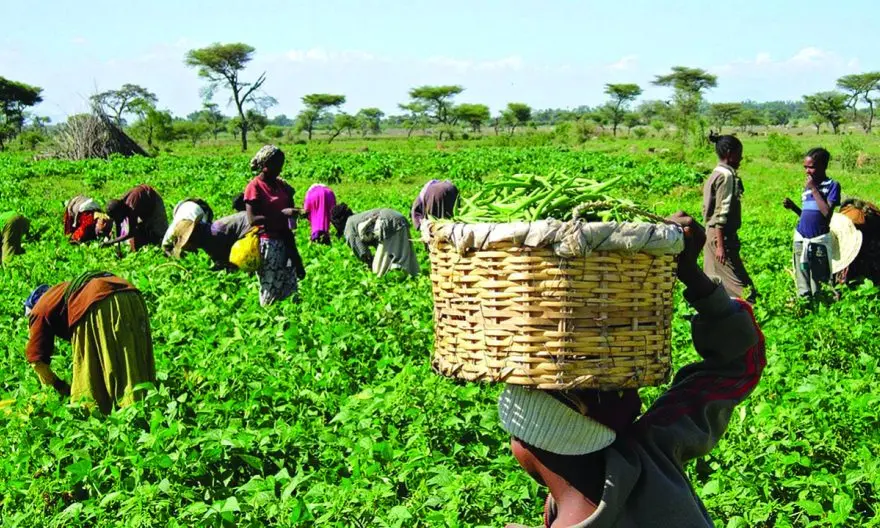
Ahmed Idris, a farmer with over 10 years of experience in Kwara, said he now records just 5 to 10 percent damage when transporting farm produce after setting up his own logistics system.
“In the real sense, we should have a working agro-logistics company. It is not a thing a farmer should personally go into, but I was able to establish one for myself, which makes it very easy to have total control of product movements” Idris said.
“There are some other factors that are beyond my control, bad roads and all. But in my entire over 10 years of experience, I’ve never had an experience that would give me 10 percent damages on the product that I’ve been transporting.”
Idris said he avoids waste by carefully matching production with market demand and limits perishable deliveries to 30–40km, but products like eggs can go as far as 250km.
The farmer explained that he bought two Siennas and a small bus to transport farm produce, since “99 percent of farmers depend on logistics used for humans, and drivers don’t have the patience to handle farm produce”.
“When we started on our own, to be honest, I doubt if I have ever experienced even 5 percent damages. For the cost of moving these products, most of the time, when PMS price skyrockets, it affects our sales distribution by almost 60%,” he said.
Idris suggested cluster farming to help smallholder farmers minimise losses from inadequate logistics, citing the inefficiency of servicing scattered farms.
He explained that partnerships would make it easier to attract investors.
“Moreover, when they come together, it’s very easy to put resources together to say we could own this vehicle to transport our products. Unfortunately, maybe, I don’t know, there is not enough partnership between the farmers themselves. Everybody does their things on their own, which in return, most times, always end up disastrous,” the farmer said.
FARMER LOSES 70% OF TOMATOES DUE TO POOR ROAD NETWORKS
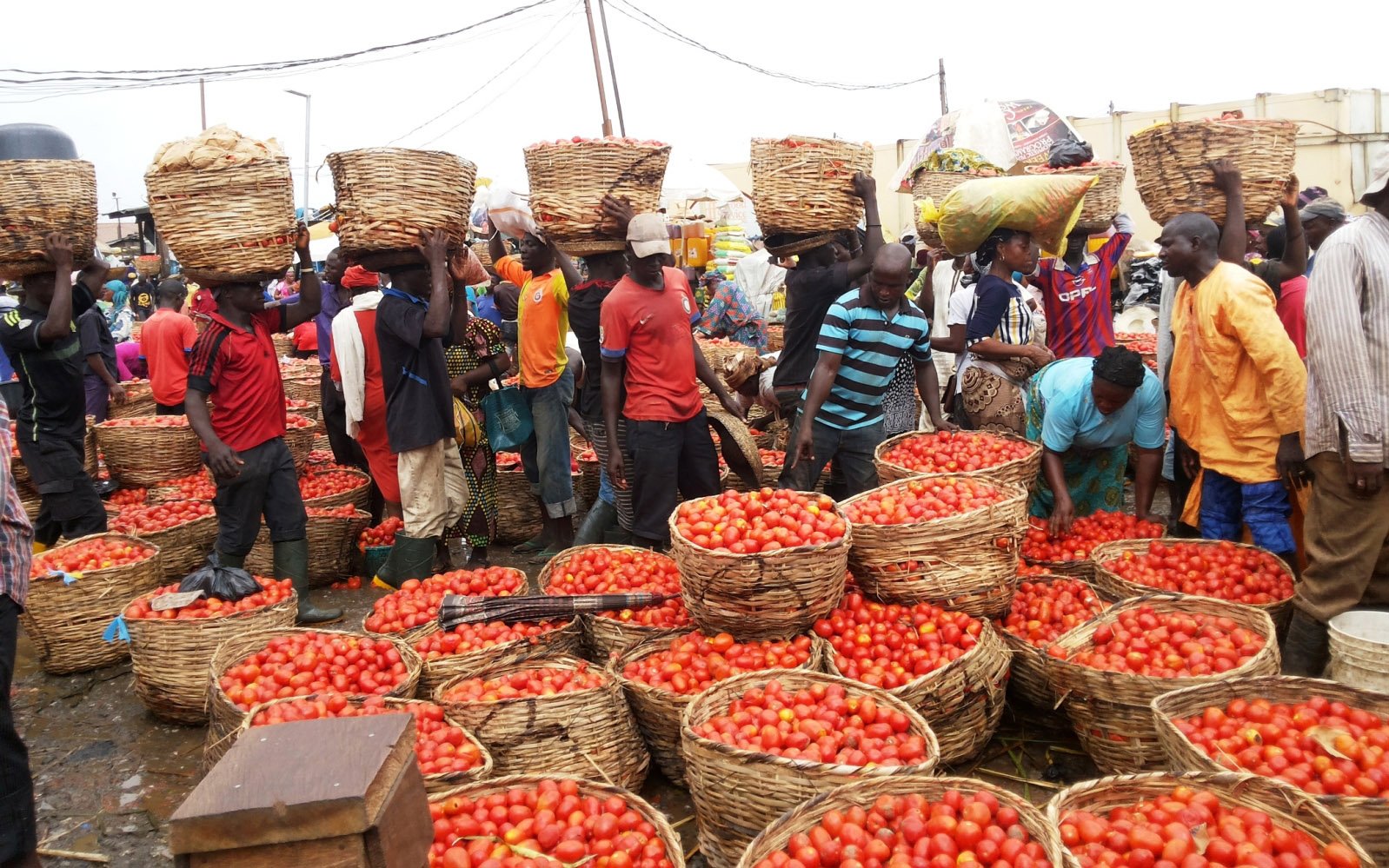
Farouq Onaolapo, founder of Olayimika Farms, says he lost nearly 70 percent of tomatoes sourced from northern Nigeria in 2023 due to poor road networks.
With nine years of experience in farming and distribution, Onaolapo shared how road conditions and traffic delays from the far north to the south-west contributed to the huge loss of perishable goods.
“The road networks between the south-west and the far north are poor, causing traffic issues. It’s always the bad road conditions or accidents. This has been a major factor in my decision,” he said.
Following that experience, he said he made a firm decision to stop sourcing or sending perishable produce across long distances in the country.
To manage the transport of perishable goods within closer regions, Onaolapo now adopts careful handling, improved packaging methods, and technology-backed transportation to keep vegetables fresh and intact.
“For nearby states, handling, packaging, and transporting are crucial. During harvest, I’m careful to minimise mechanical injuries to the crops. I harvest only the ripe vegetables, which are then carefully placed in crates after picking,” he said.
“Packaging plays a vital role in extending the shelf life of perishable crops and making them more appealing to customers. I use corrugated fiber boxes, shrink-wrapping, and plastic boxes for packaging, depending on the type and quantity of crops being sent out.
“For transportation, I employ a refrigerated vehicle for larger quantities or utilise a spacious bus that allows for proper arrangement without suffocating the perishables.”
Onaolapo’s shift to better packaging and cooling vans shows how technology can help, but without good roads and proper transport systems, even the best efforts by farmers can still lead to losses.
